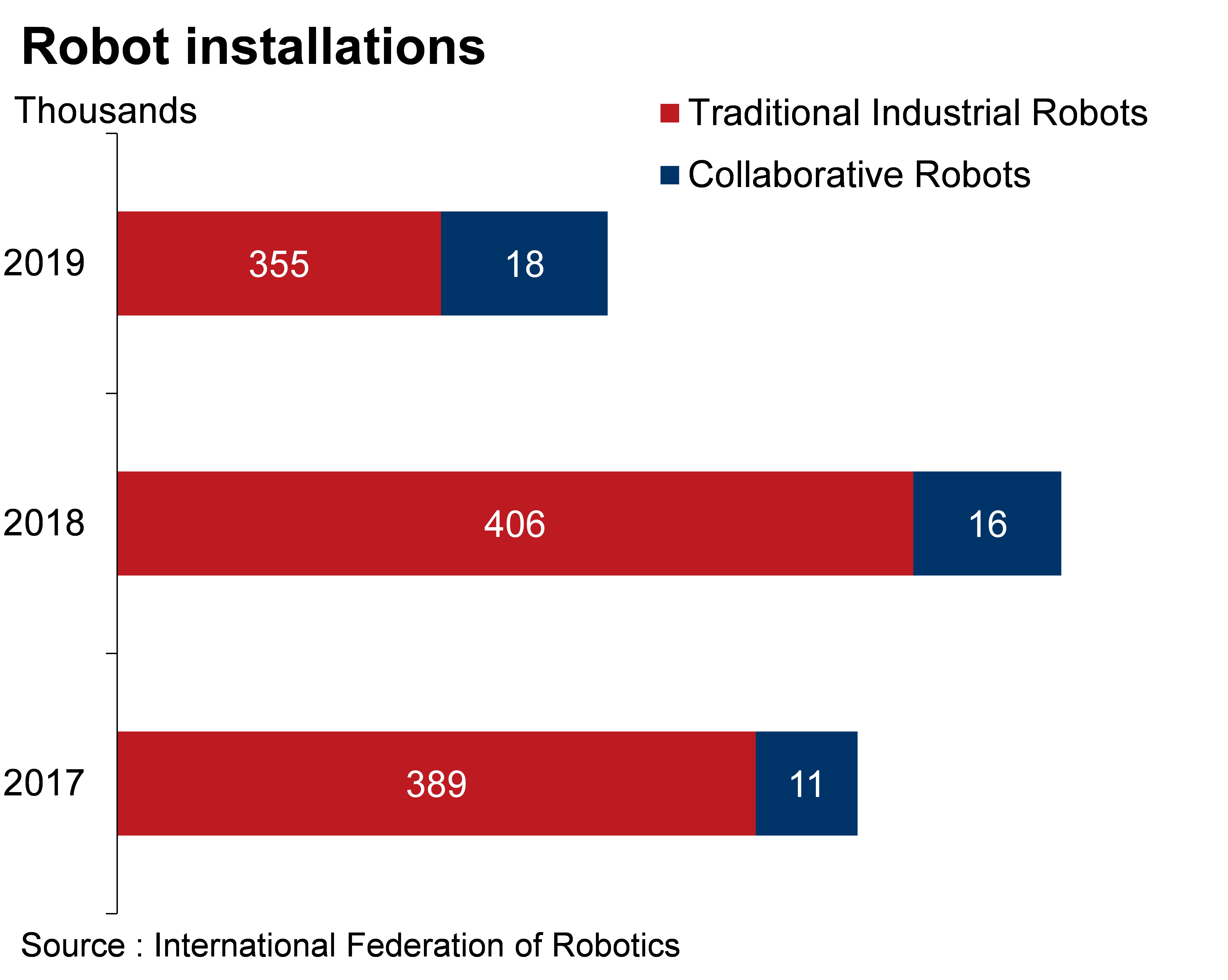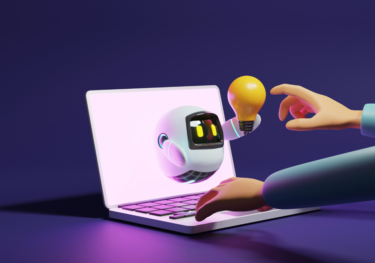Blog | 29 Apr 2021
In the 5th Industrial Revolution, creativity must meet technology

Kiki Sondh
Economist

The health crisis has wreaked havoc on global supply chains. Lockdowns, restrictions on movement and quarantine regulations have disrupted conventional working practices and put pressure on manufacturers to adapt industrial processes to stay afloat. The tables have turned from survival of the fittest to survival of the quickest—those who wish to remain competitive must embrace the latest technologies, adjust their business models, and innovate.
The pandemic has accelerated the rise of robotics, digitalisation and the onset of Industry 5.0. Like Industry 4.0, which focusses on the use of Artificial Intelligence (AI), Big Data and the Internet of Things (IoT), Industry 5.0 embodies these systems and incorporates greater human intelligence. The main difference between the 4th and 5th industrial revolutions is that Industry 5.0 seeks to foster a more balanced working relationship between increasingly smart technologies and humans. Rather than humans competing with robots for jobs, as feared with the arrival of Industry 4.0, humans are now envisioned to collaborate with them. These cobots—collaborative robots—are to be integrated into industrial processes for more repetitive and mundane tasks, providing humans with greater opportunities to use their creative flair.
 Creativity has been crucial amid the pandemic, especially due to the rise in e-commerce. Businesses have had to think of and find means to connect with consumers in ways they have not done so before. The concept of personalisation—with big data at its heart—is set to become a key driver in transforming the online shopping experience. By understanding data on consumers’ needs and preferences, employees have the ability to create personalised solutions, implemented with the help of smart technologies. This can already be seen across certain industries: in cosmetics, for example, L’Oréal will soon introduce Perso—a handheld mobile device that uses AI technology to assess the complexion of the user. Personalised beauty and skin care blends are then generated and produced with the help of a small 3D printer.
Creativity has been crucial amid the pandemic, especially due to the rise in e-commerce. Businesses have had to think of and find means to connect with consumers in ways they have not done so before. The concept of personalisation—with big data at its heart—is set to become a key driver in transforming the online shopping experience. By understanding data on consumers’ needs and preferences, employees have the ability to create personalised solutions, implemented with the help of smart technologies. This can already be seen across certain industries: in cosmetics, for example, L’Oréal will soon introduce Perso—a handheld mobile device that uses AI technology to assess the complexion of the user. Personalised beauty and skin care blends are then generated and produced with the help of a small 3D printer.
Over the past year, where patient information has been available, the healthcare industry has increasingly incorporated such technologies to provide personalised care to patients. The end of last year saw Covvi, a bionic prosthetics company, enter into a partnership with Glaze Prosthetics with the aim to expand into a range of customisable 3D printed limbs. This trend will likely continue in the sector, with healthcare professionals using their expertise to examine patient records and then turning to smart technologies for custom treatments such as individualised artificial organs.
As Industry 5.0 develops we are sure to see many more innovations across industries. But it will not be enough to merely automate tasks or digitize processes—the best and most successful companies will be those that can marry the twin forces of technology and human creativity.
Tags:
You may be interested in

Post
You don’t have to be an IT expert to lead on AI
The adoption curve for AI will vary across companies but, according to our data, it’s probably already in use in customer service and marketing—areas where women are more likely to hold leadership roles.
Find Out More
Post
Taiwan earthquake hit local chip production, but only temporarily
Taiwan was hit by the 7.2 magnitude earthquake on 3 April, the strongest in 25 years. However, the economic impact seems to be manageable so far, thanks to sparse population close to the epicentre, improving building codes and stronger disaster management and awareness in the past two decades.
Find Out More
Post
Leading through the great disruption: How a human-centric approach to AI creates a talent advantage
The Oxford Economics' and Adecco Group’s Business Leaders research investigates the changing world of work from the executive perspective. Our research focuses on the impact on talent strategy of Artificial Intelligence (AI) and Generative AI (GenAI).
Find Out More
Post
The macro impact of the AI boom in Taiwan and South Korea
The launch of ChatGPT in November 2022 made 2023 a leap forward for artificial intelligence (AI). The big battle for the future AI winners heated up and many tech companies revealed their future investment plans during the latest earnings season. A global race to build the most powerful AI chips has begun, which will potentially revolutionise the global tech sector.
Find Out More